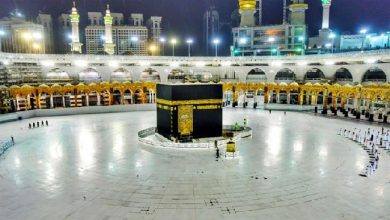Israel Launches Deadly Gaza Strikes, Signals Readiness for New Truce Talks

Israel carried out deadly air strikes on Gaza Thursday, while indicating a willingness to resume stalled negotiations on a truce and hostage release deal with Hamas, following the ongoing conflict that began on October 7.
The Gaza Strip’s civil defense agency reported that two pre-dawn air strikes killed 26 people, including 15 children, in Gaza City. Agency spokesperson Mahmud Bassal stated that one strike hit a family house in the Al-Daraj area, killing 16 people, while another strike within a mosque compound resulted in 10 fatalities. The Israeli military did not provide immediate comments.
Intense street battles also took place in Gaza’s Jabalia and Rafah, where the armed factions of Hamas and its ally Islamic Jihad claimed to have fired mortar shells at Israeli forces.
International calls for a ceasefire have increased, particularly after three European countries announced Wednesday that they would recognize a Palestinian state. This announcement comes after the International Criminal Court’s prosecutor sought arrest warrants for Israeli Prime Minister Benjamin Netanyahu, his defense minister, and three Hamas leaders on war crimes charges earlier in the week.
Israel vehemently opposed these actions, expressing “disgust” at the ICC’s move and criticizing the recognition of Palestinian statehood as a “reward for terrorism.” Senior foreign ministry official Jacob Blitstein warned the ambassadors of Ireland, Norway, and Spain that their recognition of Palestine next week would have “serious consequences” for their relations with Israel.
Domestically, pressure on Netanyahu has mounted as supporters of hostages held in Gaza rallied outside his office, demanding a deal to secure their release. A newly released video showed five female Israeli soldiers tied up, some with bloodied faces, captured during the attack more than seven months ago. The footage, taken from a militant’s body camera, revealed the traumatic treatment the soldiers endured.
Netanyahu vowed to continue the fight against Hamas to prevent such incidents from recurring, but his office also stated that the war cabinet had instructed the Israeli negotiating team to resume talks for the return of the hostages. Previous truce negotiations involving US, Egyptian, and Qatari mediators ended shortly after Israel’s assault on Rafah, the last city in Gaza to be entered by its ground troops.
Despite global opposition, including from its top ally, the United States, Israel proceeded with the Rafah operation, resulting in mass evacuations and over 800,000 people fleeing, according to the UN. Armed forces spokesperson Daniel Hagari said Israel was operating “carefully and precisely” in Rafah.
US National Security Advisor Jake Sullivan noted that the Rafah operation had been “more targeted and limited” than initially feared but refrained from confirming whether US concerns had been fully addressed, stating that Washington was closely monitoring Israeli actions.
Israeli National Security Advisor Tzachi Hanegbi provided a grim update on the war’s progress, stating that Israel had not achieved any strategic goals, including securing conditions for a hostage deal, toppling Hamas, or allowing safe return for residents of the Gaza periphery.
The conflict, which erupted after Hamas’s unprecedented October 7 attack that killed over 1,170 people, mostly civilians, according to Israeli figures, also saw militants take 252 hostages, 124 of whom remain in Gaza. Israel’s retaliatory strikes have killed at least 35,800 people in Gaza, predominantly women and children, according to the Hamas-run health ministry.
Heavy fighting continued in Gaza, with Israeli troops in Rafah dismantling tunnel shafts and launchers and engaging in close-quarters combat with militants. Urban fighting also flared in northern areas like Jabalia, with residents reporting continuous explosions and gunfire.
Dr. Mohammad Saleh, acting director of Al-Awda hospital in northern Gaza, reported that the facility was under Israeli siege for a fifth day, with soldiers present in the hospital’s courtyard and nearby houses amid continuous gunfire and shelling. The Gaza interior ministry confirmed the death of senior Hamas commander Diaa al-Din al-Sharafa in an Israeli air strike in central Gaza.
The Israeli siege on Gaza has deprived its 2.4 million residents of clean water, food, medicine, and fuel, with the sporadic arrival of aid slowing further after Israeli forces closed the Palestinian side of the Rafah border crossing with Egypt. UNRWA chief Philippe Lazzarini criticized Israeli authorities for prioritizing private commercial goods at the Kerem Shalom crossing, noting that most Gazans, after seven months of war, cannot afford goods at current market prices.






